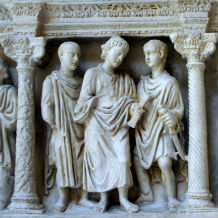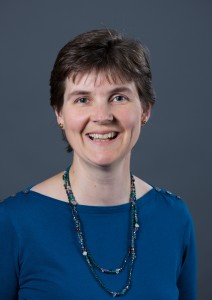Morwenna Ludlow
Do you have a place that you love, that you’ve introduced to a dear friend, only to discover that they absolutely hate it?
This was the subject of the paper I delivered to the North American Patristics Society, whose annual meeting took place this May in Chicago. Basil of Caesarea (c.329-379) is famous as the ‘father of monasticism’, but before setting up his famous monastery in Caesarea he (and his family and friends) experimented with other ways of being a monk. Basil travelled around various ascetic communities on a kind of gap year after university in Athens; he then went and taught rhetoric in Caesarea, but soon had a change of heart and settled on a remote part of his family estate (at Annisa, modern Uluköy) to live as a hermit with a small group of other men.


